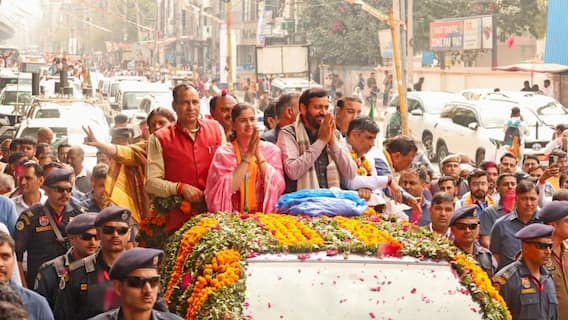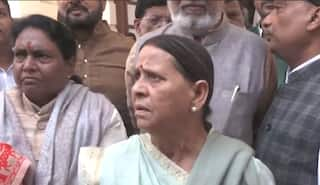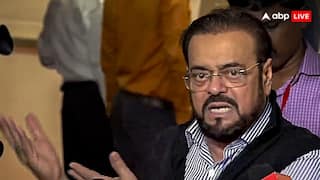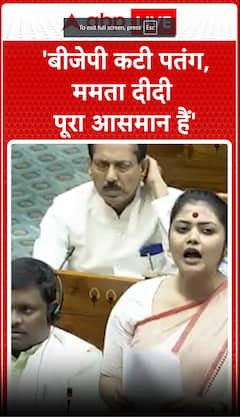Bangladesh's Yunus Calls Student Protests 'Second Revolution', Promises Transition To Pluralistic Democracy
Bangladesh's interim government is committed to transitioning to an inclusive democracy with free and fair elections, Nobel laureate Mohammad Yunus said at the Global South summit.

Mohammad Yunus, Chief Advisor of Bangladesh’s caretaker government, assured the international community of a commitment to transitioning to an inclusive and pluralistic democracy. Addressing the third Voice of Global South Summit, hosted virtually by India, Yunus highlighted the interim government's goals for free, fair, and participatory elections.
Yunus, an 84-year-old Nobel laureate, referred to the recent political upheaval in Bangladesh as a ‘Second Revolution’. He described the mass uprising that began on August 5, 2024, leading to the resignation of Prime Minister Sheikh Hasina and her subsequent departure to India. Yunus took charge of the interim government on August 8.
"Our government is dedicated to ensuring a transition to inclusive and pluralistic democracy and creating an environment conducive to free, fair, and participatory elections," Yunus stated, as quoted by news agency PTI. He noted that the recent January elections, which saw Hasina reelected amid a boycott by the opposition Bangladesh Nationalist Party led by former Premier Khalida Zia, were controversial.
Yunus took office amidst ongoing violence and vandalism, particularly targeting minorities such as Hindus. "Our task now is to implement crucial reforms in our electoral system, judiciary, local government, media, economy, and education," he added.
At the summit, Yunus invited international observers to visit Dhaka, stating, "Much of Dhaka has turned into the graffiti capital of the world," due to young students and children expressing their vision for a new democratic and environmentally friendly Bangladesh. He remarked that this wave of graffiti is an outpouring of emotions and commitment from the youth, without central planning or budget support, PTI reported.
The student-led protests that began with demands for reforms in government job quotas evolved into a broader movement that led to the government's downfall. Yunus emphasised the role of youth in shaping future strategies, noting, "Two-thirds of our population are youth. They are the most powerful segment of society."
He also discussed the need for financial system reforms to ensure equitable wealth distribution, stressing the importance of financial services for all, particularly women and youth. Reflecting on the Bengali language movement of 1952, Yunus drew parallels between past and present youth-led movements, stating that today's youth are inspiring democratic and human rights struggles across the Global South.
Yunus also remarked, "I am honoured to be the oldest 'young person' to take part in this revolution and help them make their dreams come true. They need support from all of you...Being old should not mean that you have to retire. Human creativity never stops until the last breath. We must work together to support the creativity of all people."
ALSO READ | Bangladesh Crisis: Modi Speaks To Yunus, Invites Him To Attend Global South Summit Hosted By New Delhi
Bangladesh: Yunus Says Existing Financial Systems ‘Promote Wealth Concentration’, Bats For 'Social Businesses'
Muhammad Yunus also called for a transformative redesign of financial systems in the Global South to ensure equitable wealth distribution and tackle social issues. Speaking at the 'Third Voice of Global South Summit', which was hosted virtually by India, Yunus emphasised the potential of combining entrepreneurship with social business to bring about significant positive change.
The 84-year-old Nobel laureate highlighted the importance of social businesses, which are established primarily to address social and environmental challenges. Yunus stated, "If we give an important place for social businesses, that is businesses which are created solely for fixing social and environmental problems, it can set a path to create a world of three zeros – zero net carbon emissions, zero wealth concentration, and zero unemployment", as quoted by news agency PTI.
Addressing the summit, Yunus pointed out that current education systems are geared towards preparing youth for conventional jobs, neglecting their creative potential. He advocated for a systemic redesign, stating, "Our education system and financial system are built only for creating job seekers and providing jobs for them. We have to redesign our system."
Yunus, known for his pioneering work in microfinance, expressed hope that the Global South, rich in creative young people, could collectively undertake this redesign. He proposed, "We would like to propose some common facilities in the Global South to take concrete steps to unleash the creativity and energy of our young population through social business."
Bangladesh Chief Advisor Yunus Advocates Redesigning Financial Systems At Global South Summit
Reflecting on his experiences, Yunus argued that existing financial systems promote wealth concentration and stressed the need for a more inclusive approach. "My life-long experience has been that our financial system is created to promote wealth concentration. We have to redesign our financial system to make sure wealth is shared by all," he said. "Finance should never be a wall for anybody. It should be designed to unleash entrepreneurship and creativity. Social business banks can be encouraged to be created for solving problems such as poverty and unemployment," He further added, as quoted by PTI.
Yunus also invited leaders from the Global South to collaborate in developing social businesses that address environmental and social issues, suggesting, "It can become a massive force if we work together."
The summit, which saw participation from various global leaders, provided a platform for Yunus to reiterate his vision of an inclusive financial system that supports entrepreneurship and social welfare.
Trending News
Top Headlines









































